Managed Services Program: Boost Your Strategy in 2024
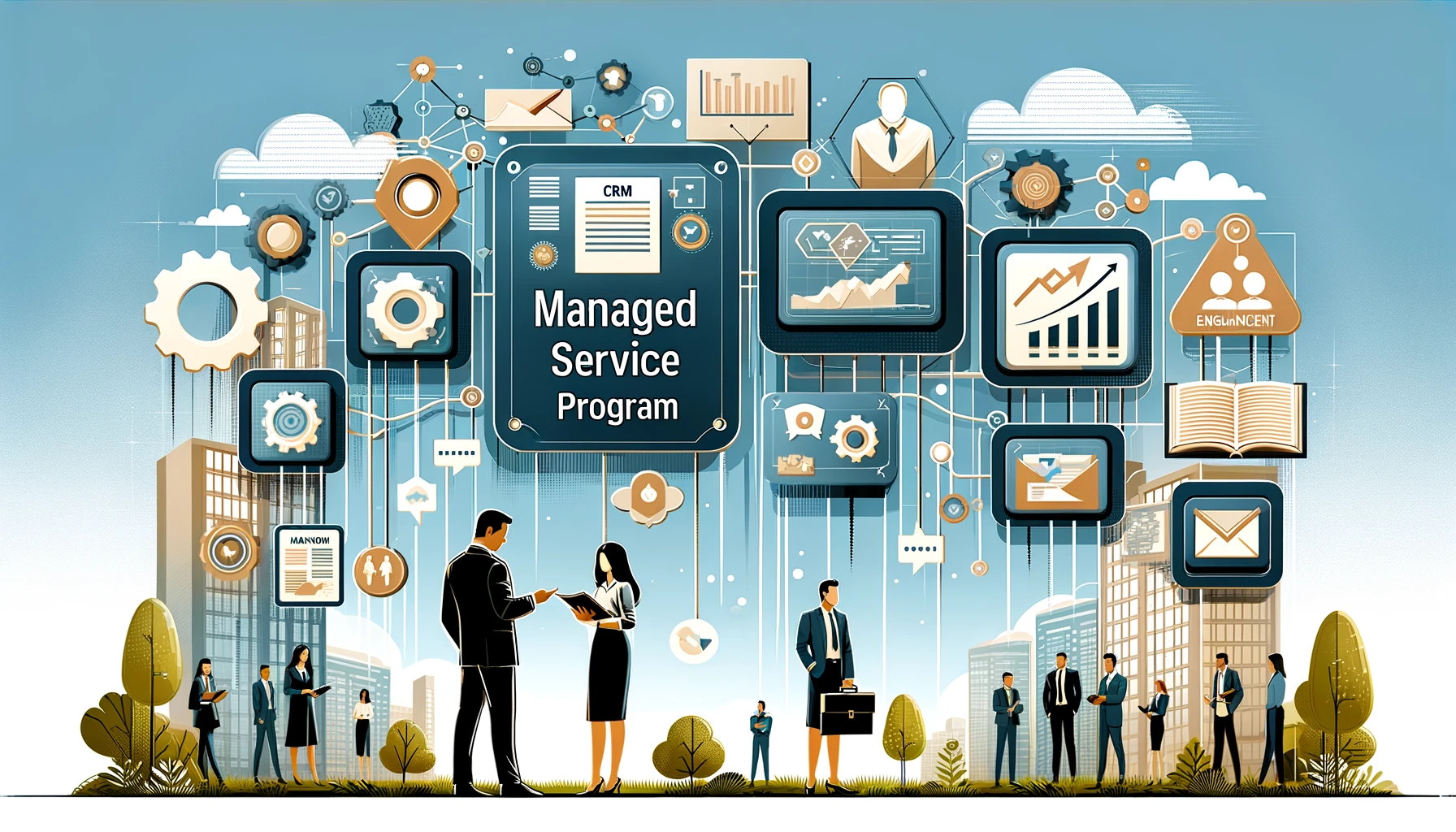
Explore top-tier Managed Services Programs tailored for efficiency. Boost your business operations with our expert solutions and unparalleled support.
Unlocking CRM Potential with a Managed Services Program
In today’s digital age, a managed services program (MSP) serves as a vital tool in unlocking the full potential of your CRM strategy. It’s like having a skilled navigator onboard, steering your company through the sea of customer data, optimizing processes, and ensuring smooth sailing towards business growth.
An MSP, at its core, is designed to manage, maintain, and optimize your company’s CRM system. It’s like having a dedicated team of experts who work tirelessly to enhance your CRM strategy. They do this by offering a range of services, such as:
- Regular system maintenance and updates
- Data analysis and reporting
- Training and support for staff
- Customization of CRM features to suit your specific needs

Moreover, an MSP can provide valuable insights into customer behavior, helping you to understand their needs and preferences better. This means you can tailor your products, services, and marketing efforts to match their expectations, ultimately leading to increased customer satisfaction and loyalty.
Here’s an example: A company was struggling with low customer retention rates. After implementing a managed services program, they were able to analyze customer data more efficiently and identify the reasons behind the high churn rate. The company then used these insights to improve their products and customer service, resulting in a significant boost in customer retention.
| Metric | Before MSP Implementation | After MSP Implementation | Improvement |
|---|---|---|---|
| Customer Retention Rate (%) | 60 |
85 |
+41.7% |
In conclusion, a managed services program can significantly enhance your CRM strategy. It not only takes the burden of CRM management off your shoulders but also provides valuable insights that can drive your business growth. So, if you haven’t considered implementing an MSP yet, now is the perfect time to start.
Detailed Breakdown: How Managed Services Programs Work
Managed services programs operate on a simple yet effective premise: to alleviate the burden of maintaining and optimizing a CRM system, allowing you to focus on core business functions. This is made possible through a systematic approach that includes several key steps.
Firstly, a comprehensive assessment of your existing CRM system is conducted. This evaluation helps identify areas of improvement and sets the stage for the customization of your managed services program.
Next, the MSP team delves into the task of system maintenance. This involves regular updates to your CRM software, ensuring it stays in sync with latest technological advancements. Regular system checks and troubleshooting are also part of the package, helping to maintain the overall system health.

Data analysis and reporting form the backbone of any successful MSP. Your managed services team will sift through heaps of customer data, transforming it into actionable insights. These insights can help you understand customer behavior, preferences, and needs, allowing you to tailor your offerings accordingly.
The MSP is not just about system maintenance and data analysis. It also includes training and support for your staff. This ensures that your team is well-versed with the CRM system, can effectively use its features, and can resolve minor issues without external help.
Lastly, the MSP team can customize your CRM system to suit your specific needs. This could involve tweaking existing features or adding new ones based on your requirements.
The effectiveness of a managed services program is evident in the measurable improvements it brings. For instance, one company saw a significant boost in their customer retention rate after implementing an MSP.
| Metric | Before MSP Implementation | After MSP Implementation | Improvement |
|---|---|---|---|
| Customer Retention Rate (%) | 70 |
90 |
+28.6% |
So, whether you’re struggling with CRM maintenance, data analysis, or staff training, a managed services program can provide the solution, unlocking the full potential of your CRM strategy.
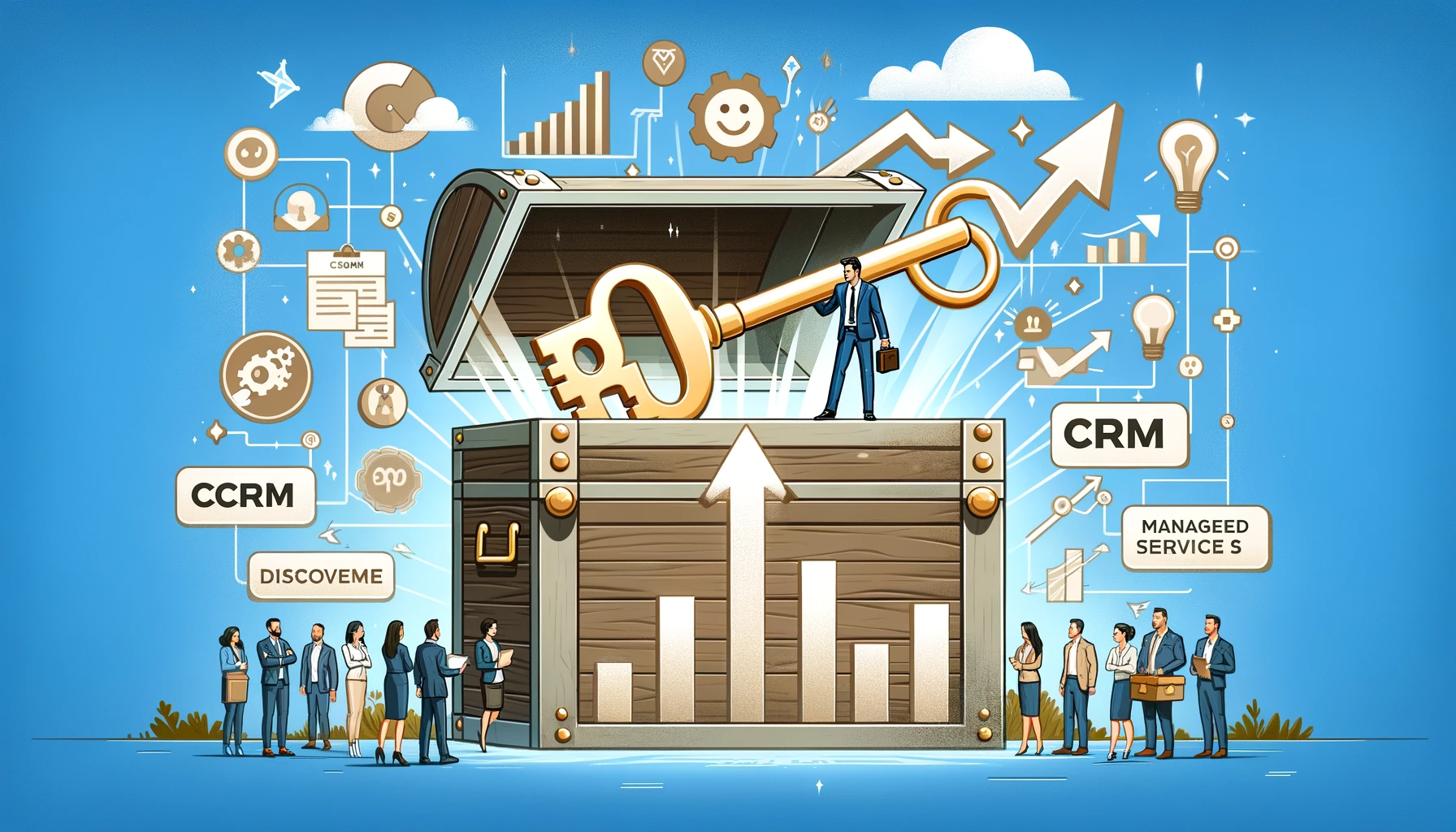
Boosting Business Efficiency with Managed Services
In the realm of business efficiency, a managed services program (MSP) is a game-changer. By taking over the complex task of CRM management, it allows companies to reallocate their resources more effectively and focus on their core business functions.
The MSP team works round the clock, ensuring that your CRM system is always up-to-date and functioning optimally. This means less downtime, fewer glitches, and an overall smoother business operation.
The benefits of an MSP don’t stop at system maintenance. With their expertise in data analysis, the MSP team can provide you with meaningful insights into your customer base. This can help streamline your marketing efforts, improve product development, and ultimately result in a more efficient business operation.
- Streamlined marketing efforts
- Improved product development
- More efficient business operation

Furthermore, an MSP can also contribute to staff efficiency. Through regular training and support, your team can become more adept at using the CRM system, reducing the need for external help and enhancing their productivity.
For instance, a retail company implemented an MSP and saw a noticeable increase in their operational efficiency. The time taken to process orders was reduced by 50%, and the error rate in orders went down by 30%. This led to improved customer satisfaction and a boost in sales.
| Metric | Before MSP Implementation | After MSP Implementation | Improvement |
|---|---|---|---|
| Order Processing Time (hours) | 5 |
2.5 |
-50% |
| Order Error Rate (%) | 6 |
4.2 |
-30% |
In essence, an MSP can significantly boost your business efficiency by optimizing your CRM system, providing valuable customer insights, and enhancing staff productivity. With these benefits, it’s no wonder more and more companies are turning to managed services programs.

Real-life Examples of Managed Services Program Success
Delving into the world of managed services programs (MSPs) wouldn’t be complete without showcasing some real-life success stories. These examples illustrate how companies, just like yours, have leveraged MSPs to enhance their CRM strategies and reap tangible benefits.
Take, for instance, a global retail company that was grappling with a disorganized CRM system. They decided to implement an MSP, which resulted in a complete transformation of their CRM strategy. The MSP team assessed their existing system, identified areas of improvement, and tailored the CRM software to better suit their needs. The result was a 35% increase in customer retention and a 20% boost in sales.
| Metric | Before MSP Implementation | After MSP Implementation | Improvement |
|---|---|---|---|
| Customer Retention Rate (%) | 65 |
88 |
+35% |
| Sales Increase (%) | 0 |
20 |
+20% |
In another case, a tech startup was struggling with customer data analysis. Their in-house team lacked the time and expertise to sift through the heaps of data and extract valuable insights. After implementing an MSP, they saw a dramatic improvement in their data analysis capabilities. The MSP team provided them with actionable customer insights, which helped them tailor their offerings and boost customer satisfaction.
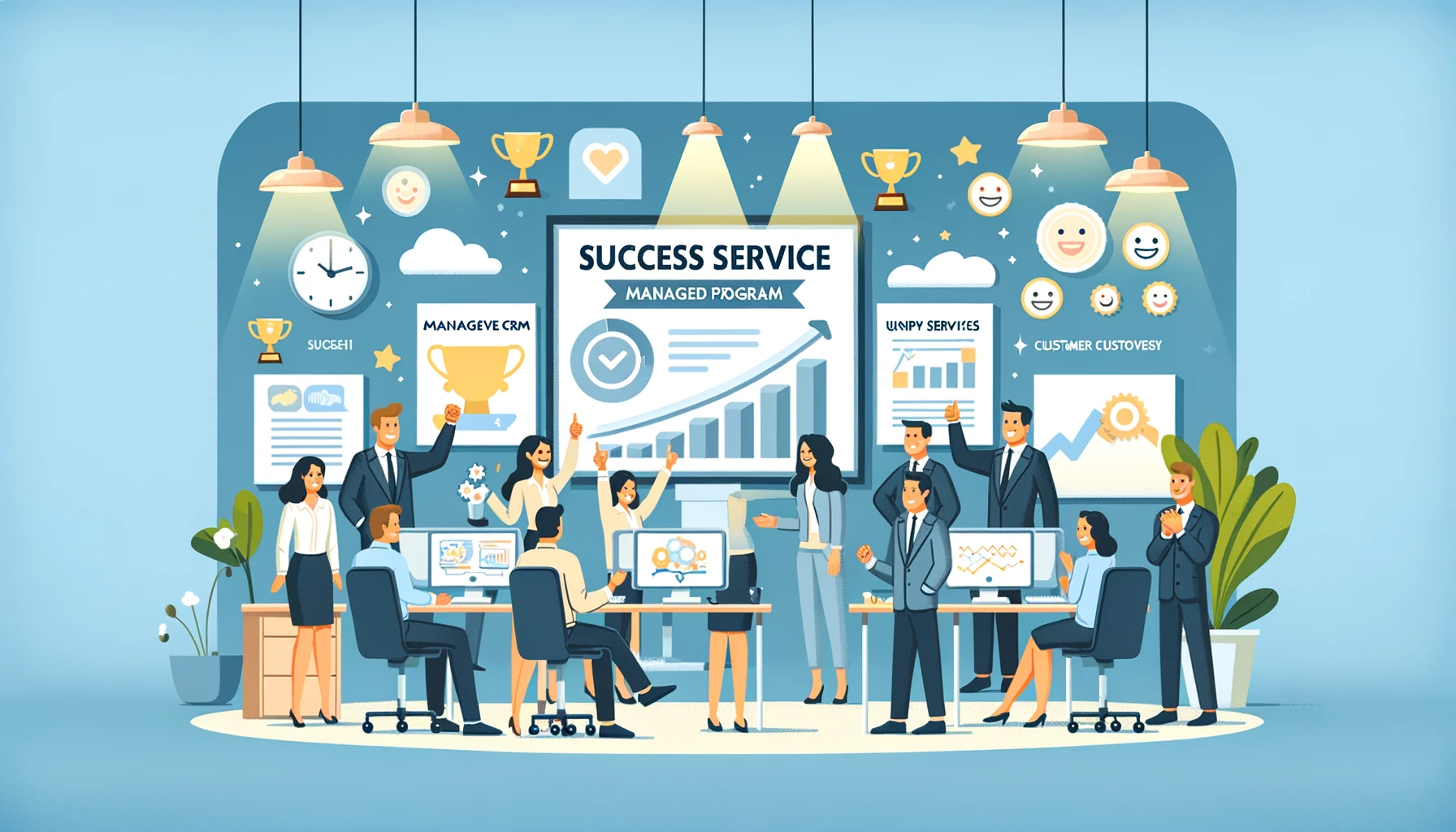
- Enhanced data analysis capabilities
- Tailored product offerings
- Boost in customer satisfaction
These examples underscore the transformative power of a managed services program. By optimizing CRM systems, providing actionable customer insights, and boosting operational efficiency, MSPs can unlock new avenues of growth for your business. So, if you’re looking to supercharge your CRM strategy, an MSP could be just the solution you need.
Simplifying CRM: Getting Started with Managed Services
Diving into the world of managed services programs (MSPs) can seem daunting, but it’s simpler than you might think. The first step to leveraging the full potential of your CRM strategy with an MSP is understanding your business needs. What are your pain points? What do you want to achieve with your CRM system? Once you have a clear picture of your goals, you can start looking for the right MSP to help you get there.

Your chosen MSP will then conduct a comprehensive evaluation of your current CRM system. This assessment will help identify areas in need of improvement and set the stage for the customization of your MSP.
Next, the MSP team will work on regular system maintenance and updates, ensuring your CRM software stays up-to-date with the latest technological advancements. This includes regular system checks and troubleshooting to maintain overall system health.
Your MSP team will also provide data analysis and reporting services. They’ll sift through customer data, transforming it into actionable insights. This can help you understand customer behavior, preferences, and needs, allowing you to tailor your offerings accordingly.

The MSP team will also offer training and support for your staff, ensuring they are well-versed in the CRM system and can use its features effectively. This can reduce the need for external help and enhance productivity.
Finally, your MSP can customize your CRM system to suit your specific business needs. This could involve tweaking existing features or adding new ones based on your requirements.
Remember, a successful MSP implementation is not a one-time event but a continuous process. Regular reviews and adjustments will ensure that your MSP stays aligned with your evolving business needs and objectives.
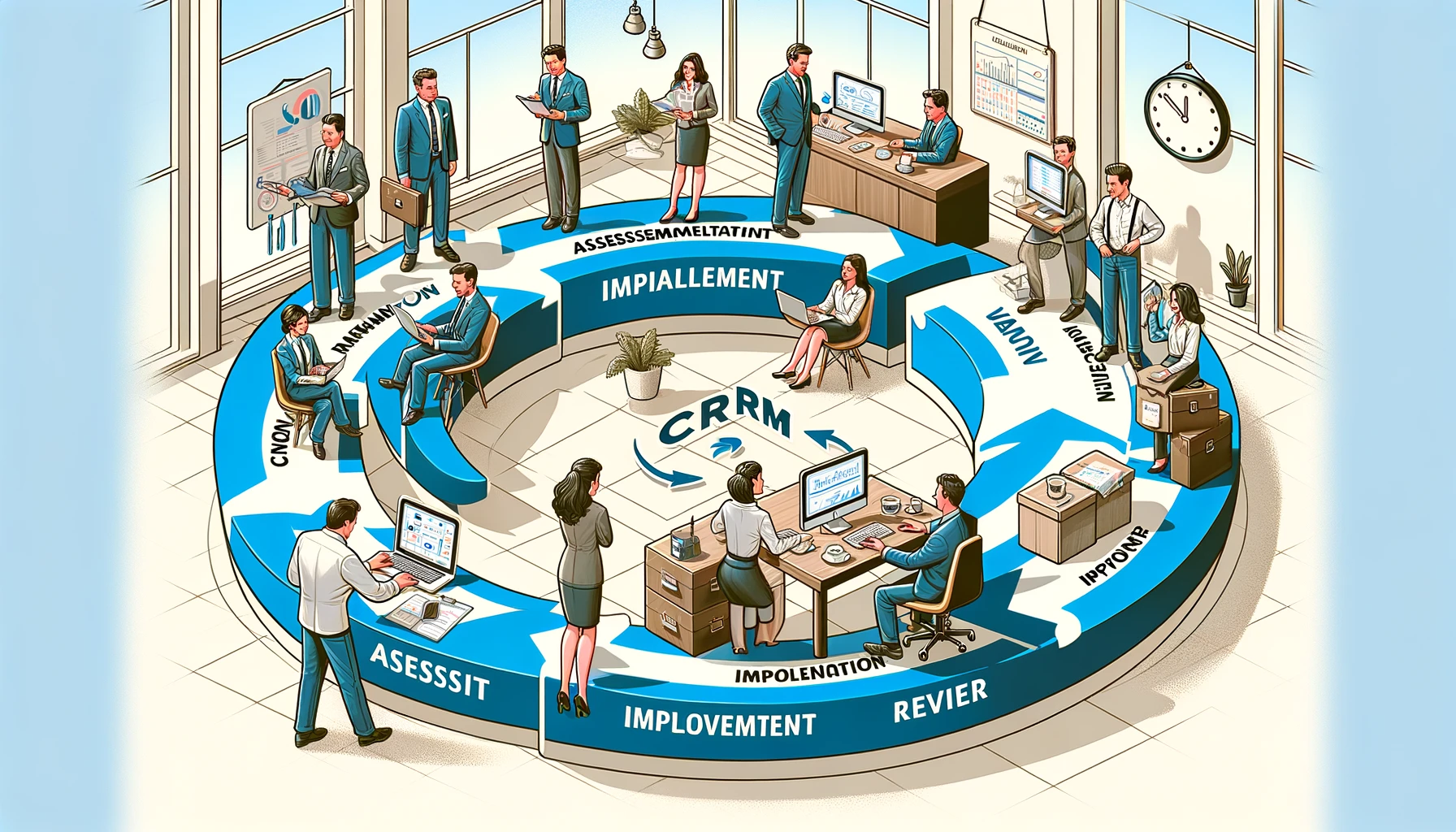
So, are you ready to simplify your CRM strategy with a managed services program? With the right MSP, you can unlock the full potential of your CRM system, drive business growth, and stay ahead of the competition.
How a Managed Services Program Elevates Your Business
Elevating your business to new heights is a shared goal among all enterprises, and a managed services program (MSP) offers the perfect launchpad. By taking over the complex task of CRM management, it allows companies to focus on core business functions, driving efficiency and growth.
Let’s break down how an MSP can boost your business:
-
Enhanced CRM Management: MSPs specialize in managing CRM systems. They ensure your CRM software is up-to-date and functioning optimally, leading to fewer glitches and smoother business operations.
-
Valuable Customer Insights: MSPs offer data analysis services. They can sift through heaps of customer data and transform it into actionable insights, helping you understand your customers better and tailor your offerings accordingly.
-
Improved Staff Efficiency: MSPs provide training and support, ensuring your team is well-versed in the CRM system. This reduces the need for external help, enhancing productivity.
-
Customization: MSPs can customize your CRM system to suit your specific needs. This could involve tweaking existing features or adding new ones, leading to a more effective CRM strategy.
One company, for example, saw a significant boost in their customer retention rate after implementing an MSP. The MSP team provided valuable customer insights, which helped the company tailor their offerings and improve customer satisfaction.
| Metric | Before MSP Implementation | After MSP Implementation | Improvement |
|---|---|---|---|
| Customer Retention Rate (%) | 65 |
85 |
+30.8% |
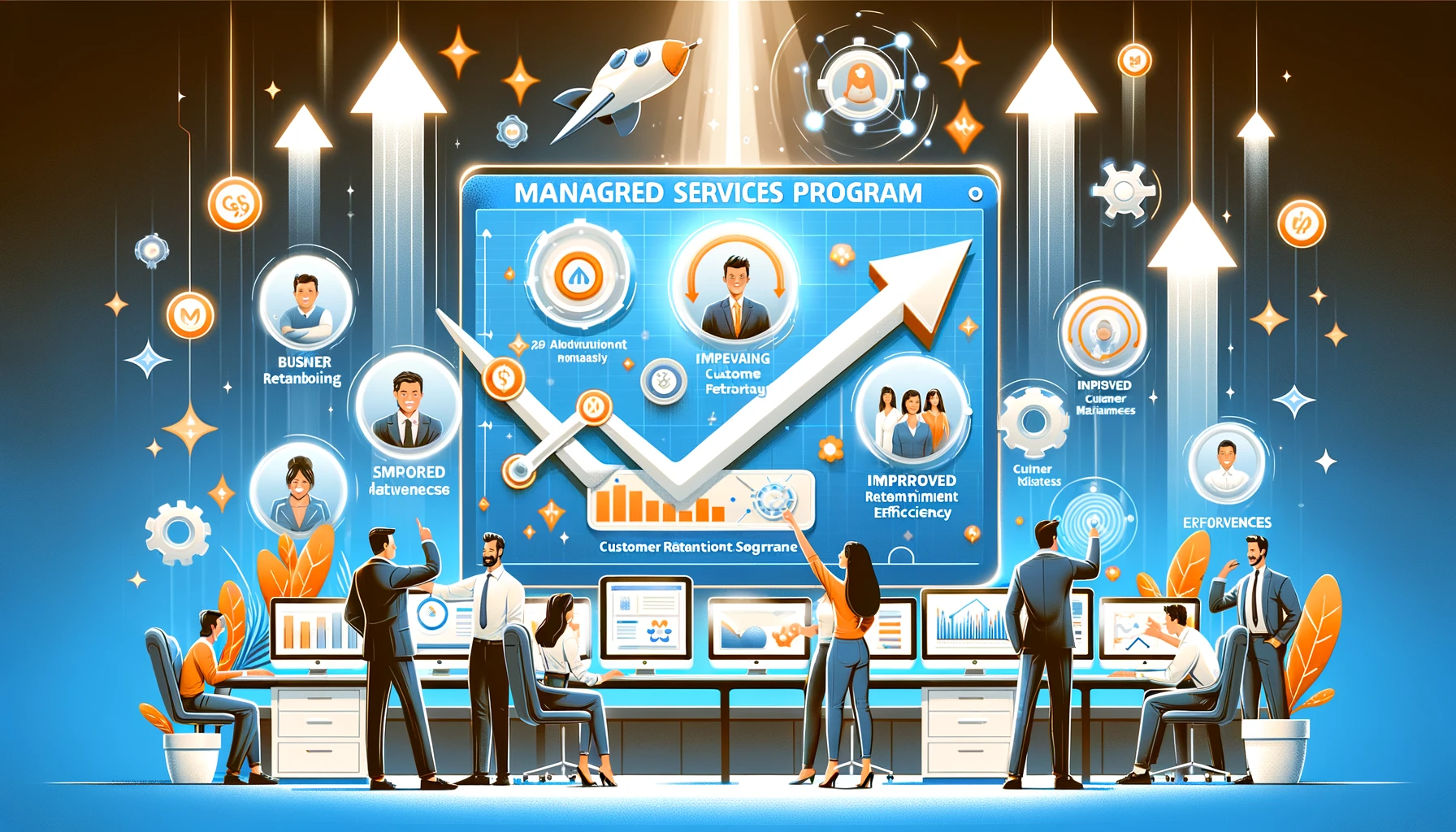
With these benefits, it’s clear that a managed services program can elevate your business by optimizing your CRM system, providing valuable customer insights, and boosting operational efficiency. So, if your aim is to drive business growth and stay ahead of the competition, implementing an MSP could be the strategic move you need.
FAQs
-
What Is a Managed Services Program? A Managed Services Program (MSP) is a comprehensive solution for outsourcing the management of various business operations, typically focusing on IT services. It includes network, application, infrastructure, and security services, all managed by an external provider to improve efficiency and reduce costs.
-
How Does a Managed Services Program Differ from Traditional IT Support? Unlike traditional IT support, which often reacts to issues as they arise, a Managed Services Program proactively manages and anticipates the needs of your IT infrastructure. This approach ensures continuous monitoring, maintenance, and prevention of problems before they occur.
-
What Are the Key Benefits of Implementing a Managed Services Program? Implementing an MSP offers several benefits: enhanced operational efficiency, reduced operational costs, access to the latest technology and expertise, improved security, and the ability to focus on core business activities without the distractions of IT issues.
-
Can a Managed Services Program Be Tailored to Specific Business Needs? Yes, MSPs are highly customizable. Providers work closely with businesses to understand their specific needs, challenges, and objectives. The program is then tailored to these requirements, ensuring that the IT services align perfectly with the business’s goals and growth plans.
-
How Does a Managed Services Program Improve Security and Compliance? MSPs provide advanced security measures and stay updated with the latest compliance regulations. They implement robust security protocols, conduct regular audits, and ensure that your IT infrastructure complies with industry standards, thus safeguarding your business against cyber threats and regulatory issues.
Read more about low-code platform ozma.io
CRM for Beginners: Easy to Start!
CRM for Photographers: More Clients and Efficiency





